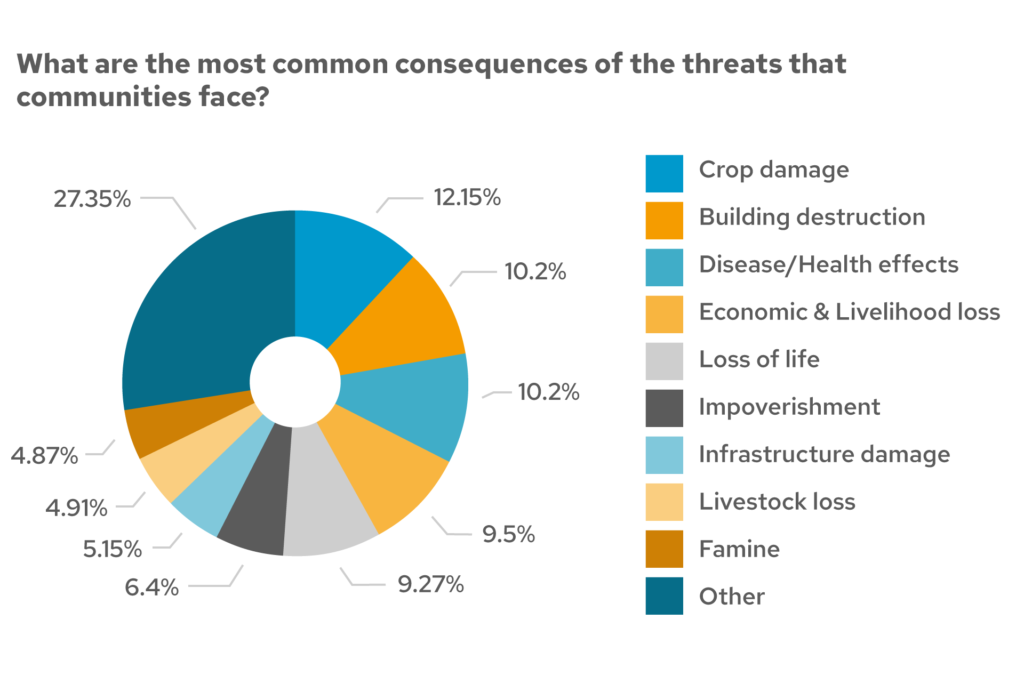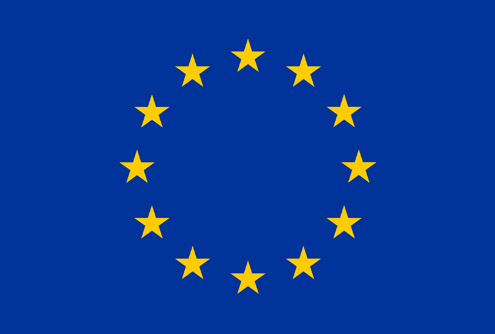VIEWS FROM THE FRONTLINE
Madagascar
We’re working with 15 communities in Madagascar to ensure that development is informed by the perspectives of people most at risk.
As part of our global Views from the Frontline programme we have surveyed community members, civil society organisations and government representatives across the country. Here we present our key findings, conclusions, activities and impact.
Random household surveys
Civil society surveys
Local government surveys
Key findings and conclusions at the national level
- The enabling environment for engaging communities at the local level in assessing, planning, implementing and monitoring risk reduction activities is not fully achieved – as a result community engagement is low
- There is a lack of coherence between development, disaster risk reduction, climate change adaptation and mitigation, and ecosystem management strategies, policies, plans and projects
- Perception of risks differ between different vulnerable groups

Surveys undertaken in Madagascar
Our Views from the Frontline surveys in Madagascar were undertaken in 2019.
Who was surveyed?
We surveyed 1,268 random households, 155 civil society organisations, 157 local government representatives, and undertook 96 community consultations.
Risk locations prioritised
We prioritised three risk areas:
- Bassin Versant Centre Ouest
- Grande plaine d’Antananarivo
- Littoral Nord-Est
- Grand Sud
Communities surveyed
We surveyed people from 15 communities: Morondava, Miandrivazo, Mandoto, Belo sur Mer, Ville Haute, Ville Basse, Belanitra-Sovimasoandro, Ampanefy, Maroantsetra, Sambava, Soanierana Ivongo¸ Toliary, Ambovombe, Miary and Androka.
“Our future depends on agricultural activities, which have recently been seriously threatened by locust invasions and drought. We would like to see initiatives that focus on our consideration and support, especially for people like me as a mother with children.”
Community Representative, Grand-Sud, Madagascar
Our impact
Activities undertaken in response to community-level findings and conclusions
- Built the capacities of communities and sensitised them on their role in assessing, planning, implementing and monitoring risk reduction activities – especially women
- Facilitated the creation of an enabling environment to bring coherence between development, disaster risk reduction, climate change adaptation and mitigation, and ecosystem management strategies, policies, plans and projects through interventions such as plantations, cleaning of canals, reforestation and the protection dykes to prevent flooding
- Development of criteria and a framework for community engagement and support for resilience building processes with key stakeholders in the area of disaster risk reduction
Impact of activities
- Enhanced community participation in project planning to ensure disaster risk reduction measures are taken into consideration and adherence to regulations to reduce disaster risks and threats
- Enhanced coherence between development, disaster risk reduction, climate change adaptation and mitigation, and ecosystem management strategies, policies, plans and projects
- Empowered communities in order to bring uniformity toward risk perceptions among different vulnerable groups
When you don’t dirty, you clean: reducing flood vulnerability through canal rehabilitation
During a local disaster risk reduction (DRR) planning exercise, the Belanitra – Soavimasoandro community identified water pollution as a key risk and prioritised the rehabilitation of local water canals through a multi-stakeholder community approach.
Using the popular slogan, ”When you don’t dirty, you clean”, community members were made aware of the risks involved in polluting water canals with household garbage, and now work to keep them unobstructed.
Today, water flowing through the canals is used in surrounding water rice plantation fields in Belanitra and Soavimasoandro. The canals also have a higher retention capacity which has reduced the community’s risk of flooding and waterborne diseases.
Our project partners in Madagascar
Our Views from the Frontline programme is implemented by GNDR member organisations and partners in the country.
National coordinating organisation
- Sampan’Asa momba ny Fampandrosoana
Partner organisations
- Young Progress
- Voahary Salama
- Association Haja
- Sampan’Asa momba ny Fampandrosoana
View all data from Madagascar
You can view all our Views from the Frontline survey data using our data dashboard. You can also learn more about our methodology for selecting at-risk areas and survey respondents.
Project funded by
European Union

Our Views from the Frontline project is funded by the European Union (EU). Content related to this project on our website was made possible by the support of the EU. All content is the sole responsibility of GNDR and does not necessarily reflect the views of the EU.
View their websitePhoto credit
Image by Fifaliana Joy from Pixabay.